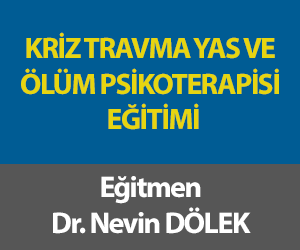If you can recognize suicide potential, you may save a life

At 16, Joe Muñoz decided to end his life after breaking up with his girlfriend. Two days later, he was in a hospital in a coma, and doctors were advising his mother to let him go. "Look, he's gone. He's done," Mr. Muñoz, now 46, says they told her. "If he survives, he'll be brain-damaged." They advised her to consider organ donation. Mr. Muñoz's wasn't a high-profile suicide attempt that made headlines. He didn't jump off a highway overpass or bridge. He didn't shoot himself. Instead, he took sleeping pills.
In 2005, the most recent year for statistics, an estimated 816,000 Americans tried to kill themselves, according to the American Association of Suicidology. That same year, 32,637 died by their own hand. In Texas, the number was 2,418.
In addition, after 10 years of steady decline, the national teen suicide rate jumped 20 percent from 2003 to 2004, according to a study published this month in the Journal of the American Medical Association. Pediatric researchers at Nationwide Children's Hospital in Columbus, Ohio, who conducted the study, note that from 2004 to 2005, it remained elevated.
Mental health professionals concede that not all suicides can be prevented. "There are certainly people who are much more deliberate," says Margie Wright, executive director of the Suicide & Crisis Center of North Texas, "and, quite frankly, more determined."
Professionals are learning more and better ways to intervene and to prevent death in cases such as Mr. Muñoz's, as well as to follow up with targeted care. The crisis center also has a program designed to recognize early warning signs for suicide.
Anything that slows a person down improves the chances that he or she won't succeed, experts say.
"I've worked with over a thousand suicidal people," writes David Rudd, professor and chairman of the Texas Tech University psychology department, in an e-mail. "The overwhelming majority don't want to die. Anything that sways their thinking in the direction of living, like making access difficult, helps."
In Mr. Muñoz's case, the fact that he couldn't get to his stepfather's guns on that day 30 years ago may have saved his life. "The only reason I didn't shoot myself," he says over coffee, "is that he kept his guns in a safe and locked, and he was the only one with a key."
Experts call guns and bridges "high-lethality" means. Choosing them is more likely to produce a fatality. But in a state such as Texas, the availability of guns adds to the problem, says Gray Atkins, a clinical psychologist in Plano who says the topic of suicide comes up weekly in his practice.
"People keep guns in their house for ready access because when someone kicks in the door, they don't want to find the key to the gun lock or go up to the attic for ammunition. Most people keep them loaded or the ammo close by," Dr. Atkins adds.
Research shows that easy access to a gun is a factor in suicide.
When people call the crisis center hotline, counselors immediately try to assess the seriousness of the suicidal thoughts, Ms. Wright says.
"If we're talking to someone who's calling us and they're talking about wanting to die, we start talking to them: 'Have you thought about how you would do this?' If somebody says, 'I have a gun,' we would say, 'Would you be willing to put the gun down?' Or 'Would you be willing to put it in another room?' We try to give power to callers.
"That's a process of slowing people down ... ," Ms. Wright says. "I think if they call that there's still some ambivalence, or they wouldn't be calling us.
"And there are people who I think are very impulsive and impetuous," she says. "Particularly, for example, a teenager after they break up with a girlfriend or boyfriend, or don't make the baseball team. ... I think a lot of times the impulsive ones are the ones that don't call."
That would describe Mr. Muñoz, who gave little thought to his actions and reached out to no one.
"It was spontaneous," he says. "I used to work in a pharmacy. I bought two bottles of sleeping pills. I wrote a goodbye letter to my family."
The next morning, after his mother left for work, he went upstairs, took the pills, then lay down on his bed.
"My heart started jack-hammering," he says, "and there was this wheezing, this noise coming from my heart. I thought, 'Holy [expletive]! I'm dying!' And I realized my idiocy."
Mr. Muñoz stumbled downstairs and told his younger brother what he'd done. "A friend of the family happened to be there and called 911," he says. "The cops came by and kept asking if I wanted to go to the hospital. I said, 'I just took two bottles of sleeping pills. What do you think?' "
Before waking up in the hospital, Mr. Muñoz spent his last lucid moment vomiting. By then, he wasn't thinking about the pain that drove him to act. Only later would he learn that depression often is a factor in suicide.
"I think unbearable pain and a sense of utter futility ... are the two kinds of common threads in almost every suicidal risk I see," Dr. Atkins says. It's a common practice, he says, for counselors to elicit a no-suicide contract with patients.
"Over 90 percent of people who make suicide attempts have a psychiatric illness," says Betsy Kennard, an associate professor in the department of psychiatry at UT Southwestern Medical Center. She works with adolescents who have attempted suicide.
Although Mr. Muñoz has not been diagnosed with mental illness, he says he has grappled with some degree of depression all his life. The anxiety of being 16 plus the breakup felt like the world was piling on. "I was hurting," he says.
Even if a teen will open up, people sometimes mistake depression for teenage angst.
It's different, Mr. Muñoz says. "Think of the saddest moment in your life: the death of a loved one, the loss of somebody close," he says. With depression, "that heaviness never goes away. It's always in your chest, in your throat."
Within a week of his release from the hospital, Mr. Muñoz started seeing a therapist, "probably one of the best things I had to do," he says. "I began to learn to deal with the stress and sadness in a different way." He also started volunteering and lifting weights. The depression has never left him, he says, but he acquired the skills and faith to minimize its effect.
"We have a method for screening kids for depression in schools," says Ms. Wright of the crisis center, and it's free of cost to the schools. "It's just opposite of what the public might think. We don't screen people with problems." Those kids have already been flagged by family or faculty, she says. Instead, the staff goes in and screens an entire classroom at one time, she says. "We find the kids that no one suspects."
One of the most important steps in intervention is helping people in crisis to realize that they won't always feel as bad as they do in that moment.
"I'll tell you the thing I always tell my patients," Dr. Atkins says. " 'Three months from now, your life is going to look a lot more positive, and you're going to thank God you didn't follow through with your suicidal thoughts.' "
Mr. Muñoz would agree. He went on to become a television reporter, most recently at KXAS-TV (Channel 5), before a back injury sidelined him in 2000. By the time he was confronted with that loss, "my faith had grown deeper over the years and helped me deal with it."
These days, Mr. Muñoz speaks to groups about suicide, and he advises anyone thinking about it to "give it a day. As bad as it feels right now, the heaviness is going to lift.
"Had I succeeded, I would have missed out on an awesome life, an amazing career," he says. "Betty and I are having our first baby. I felt it kick the first time the other day. The hopelessness I felt back then is nothing compared to the joy I feel now. I thank God for His grace and giving me another chance."
Kim Pierce is a Dallas freelance writer.










Türkçe karakter kullanılmayan ve büyük harflerle yazılmış yorumlar onaylanmamaktadır.